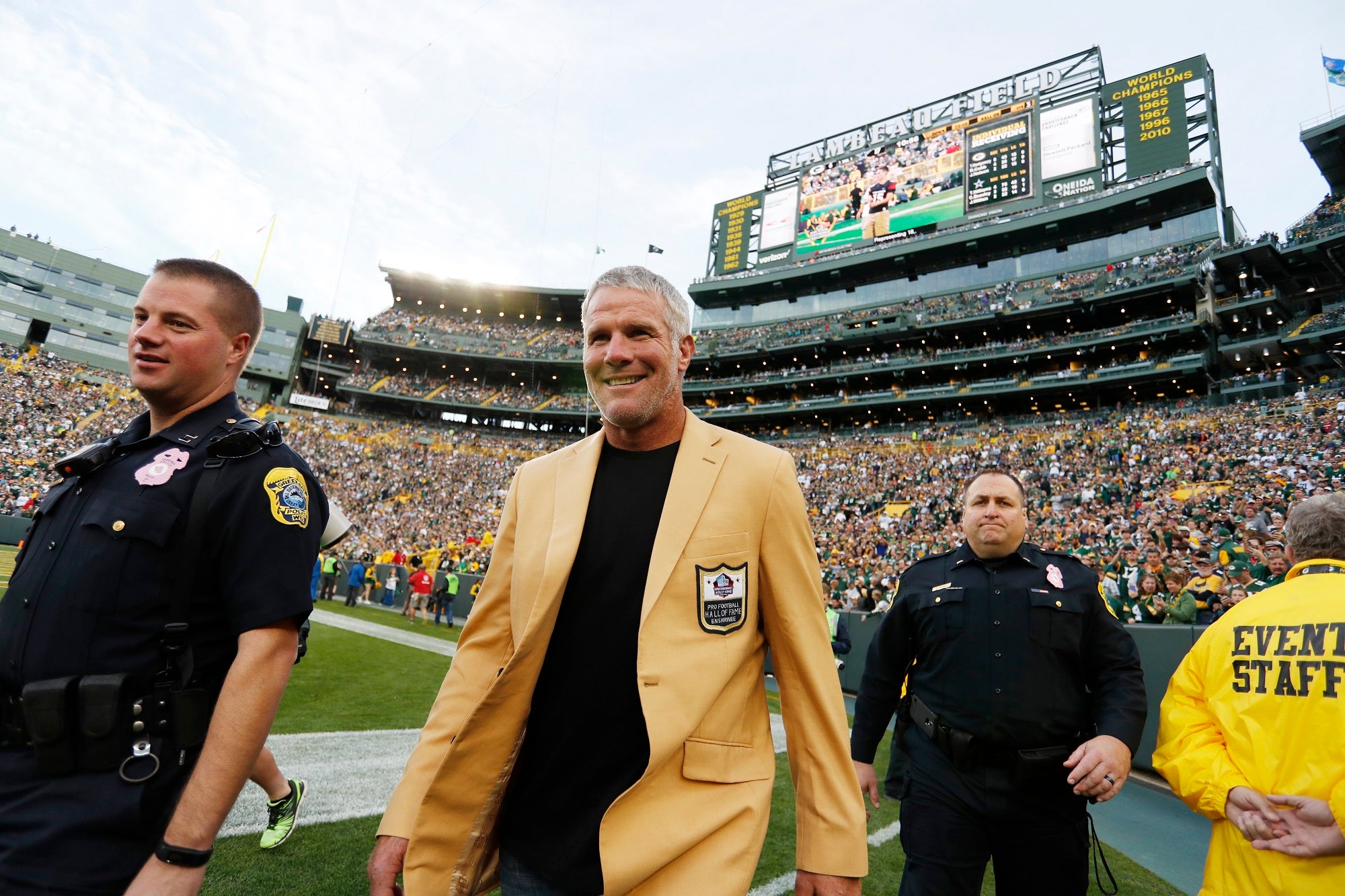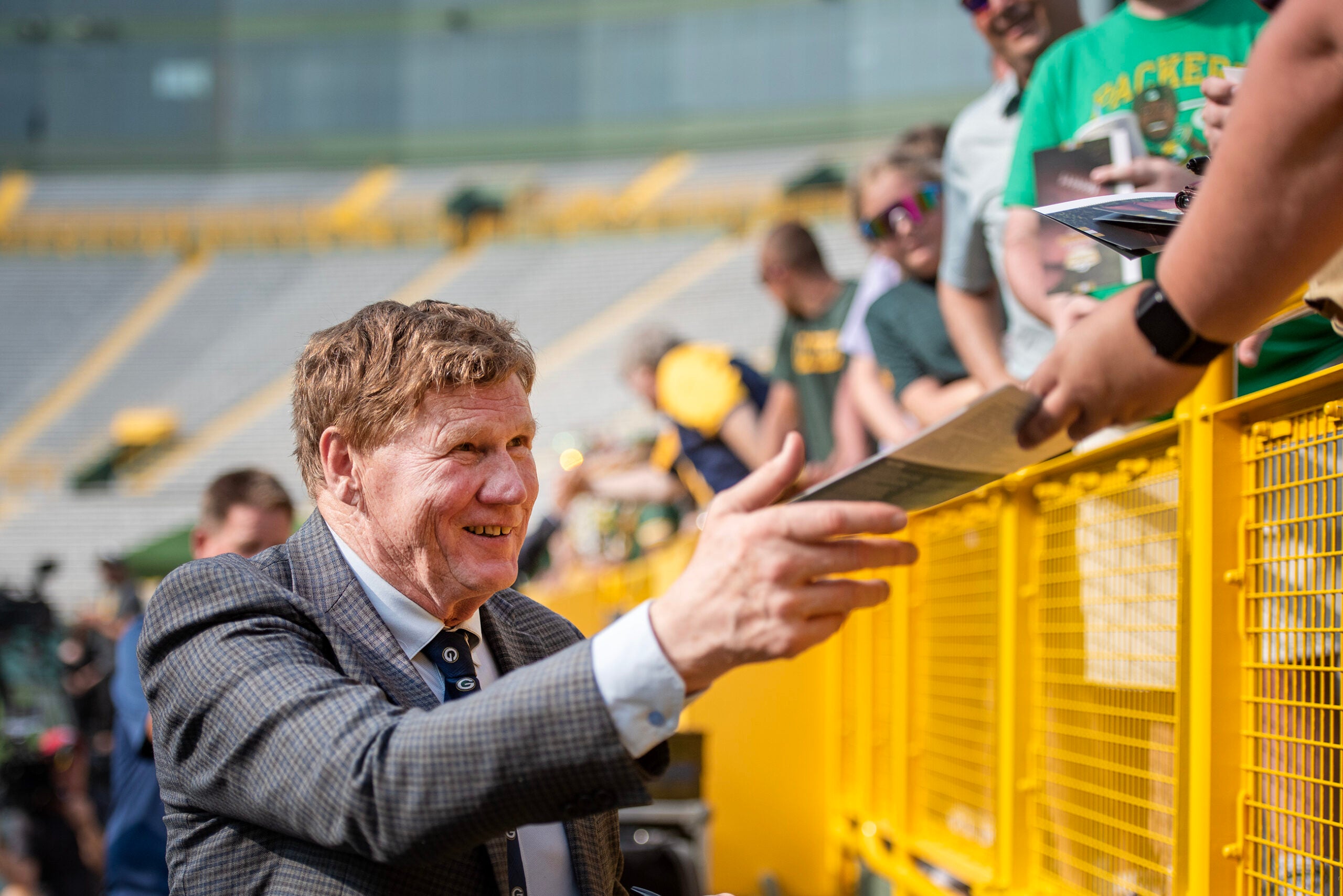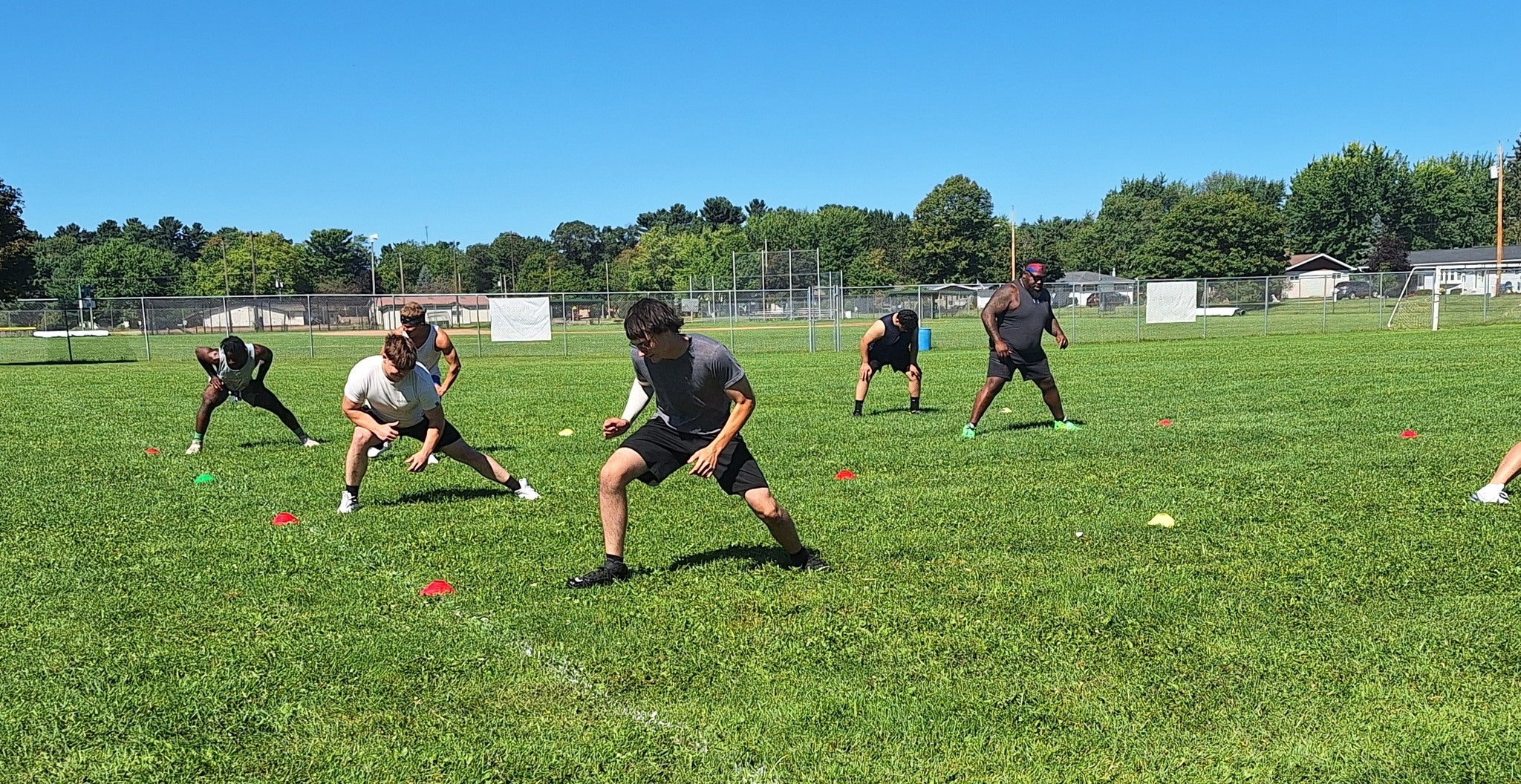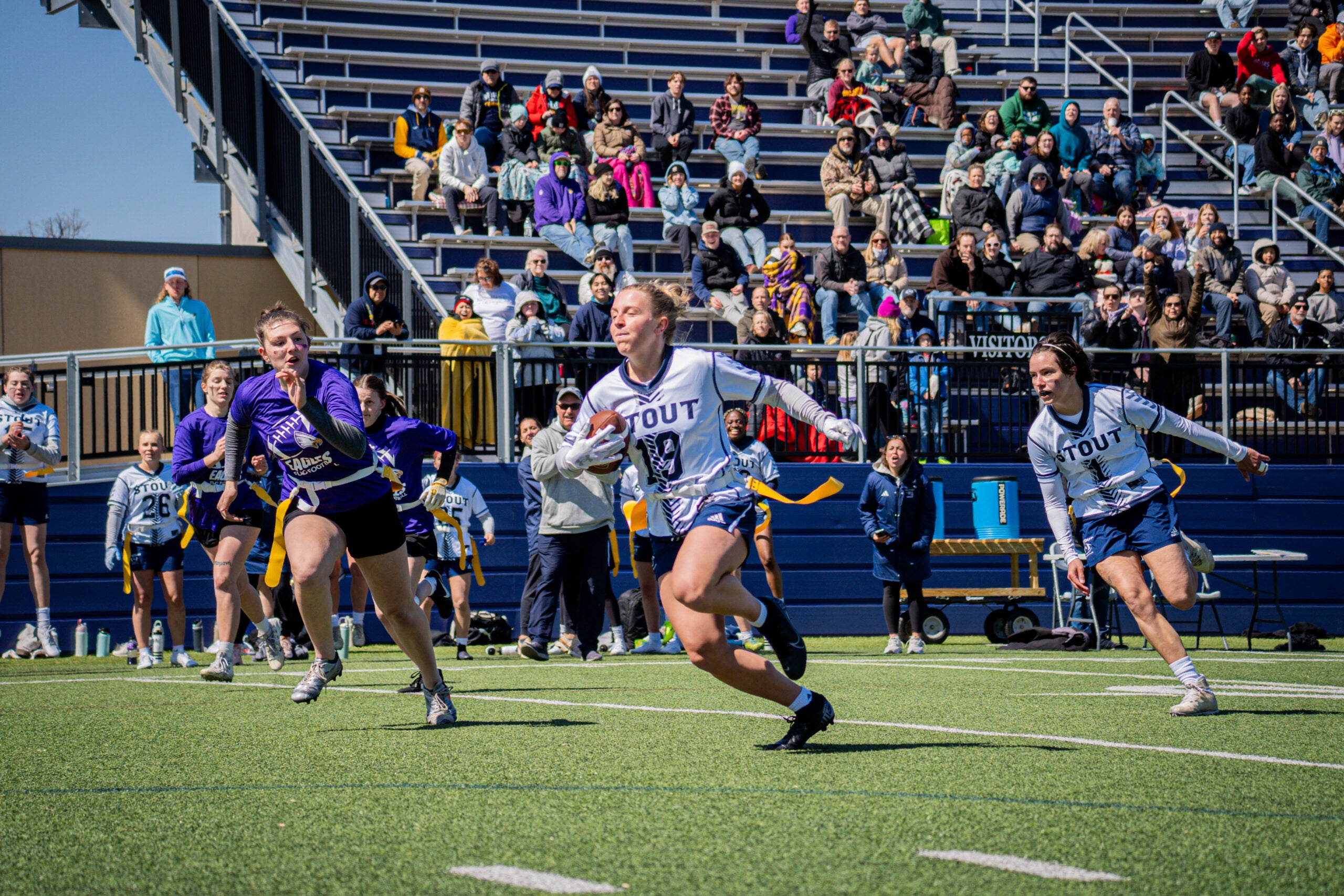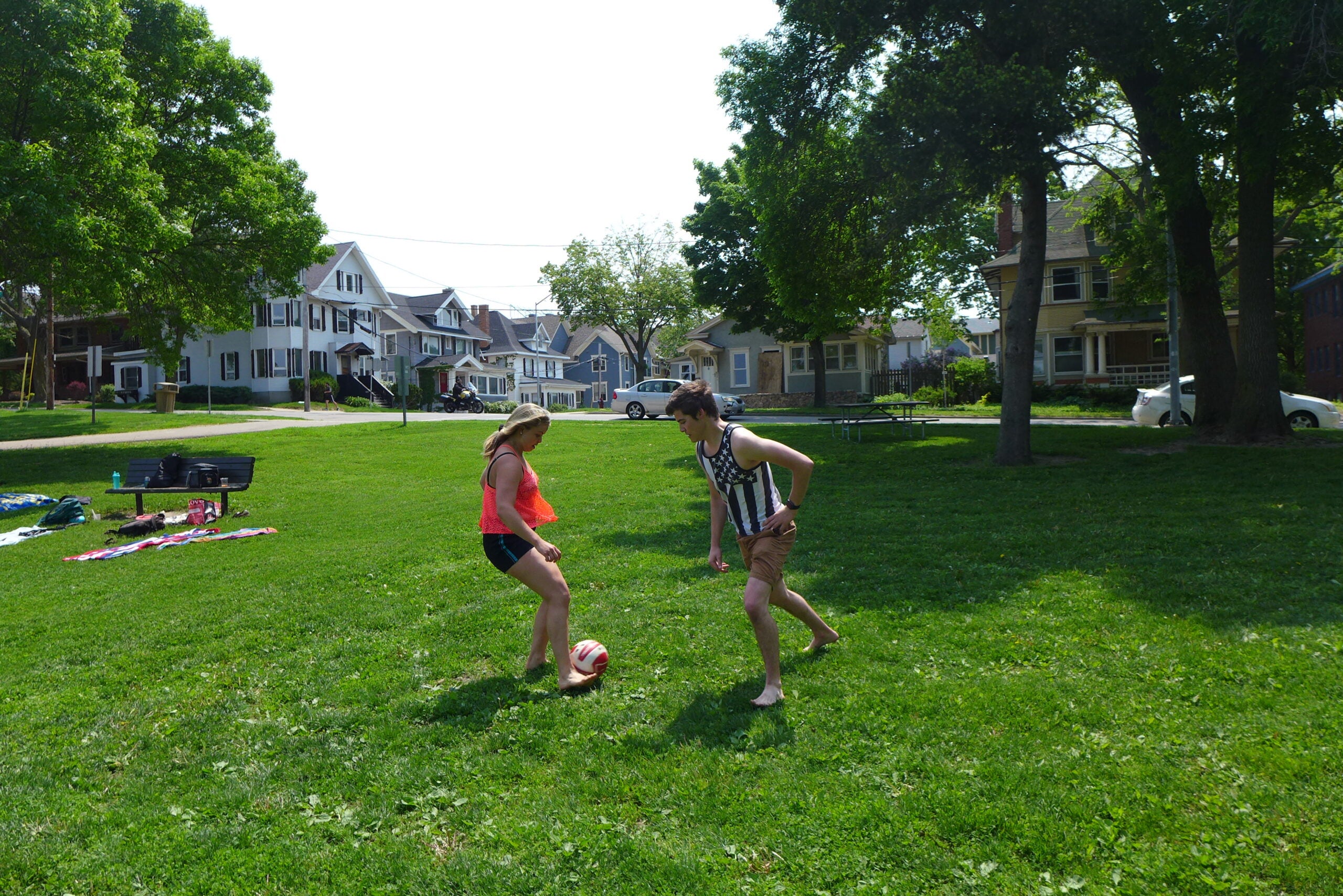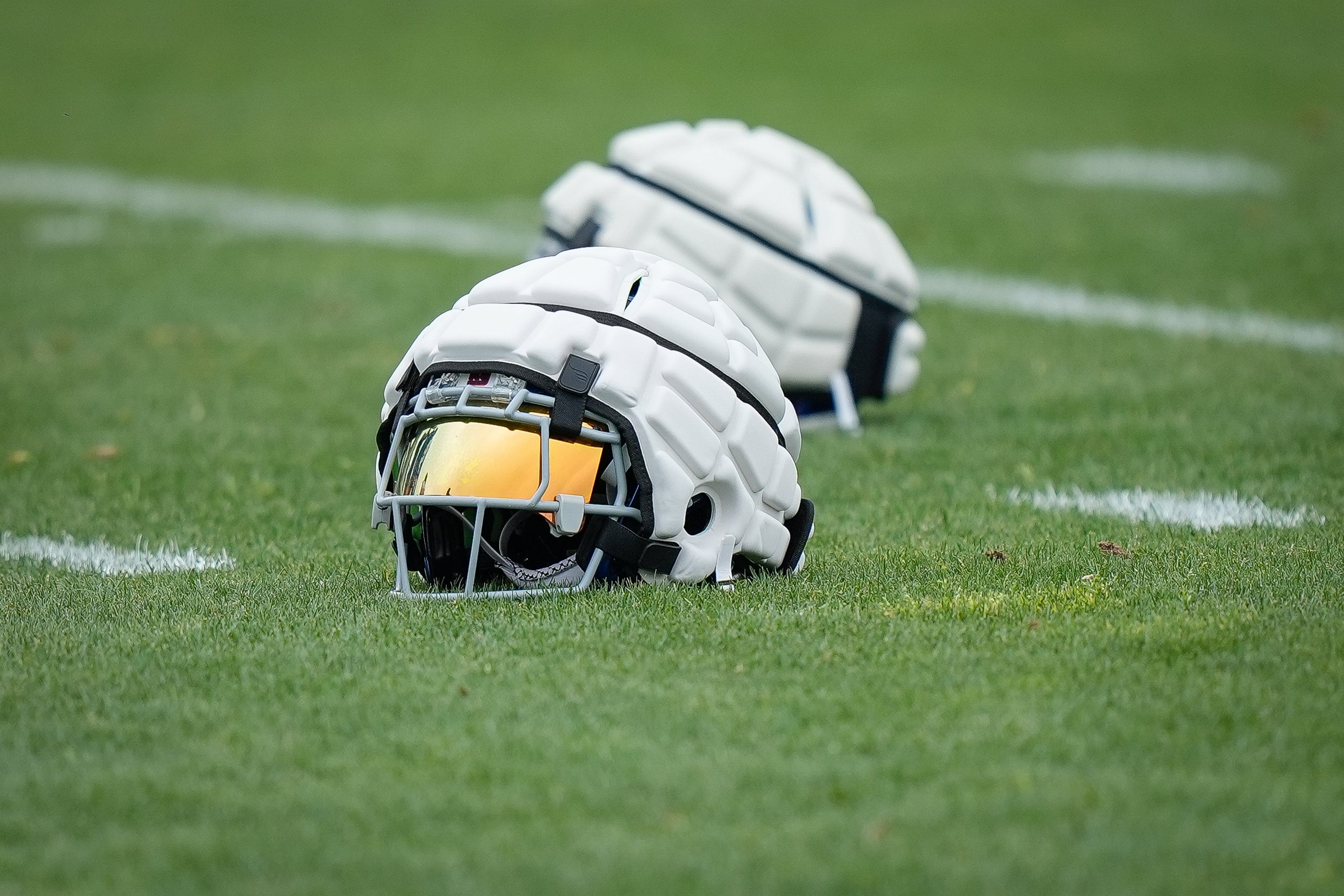Young tackle football players experience an average of 378 head impacts per season — 370 more than flag football players. That’s according to a study from the Centers for Disease Control and Prevention published earlier this year.
The findings show flag football may be a safer alternative for kids under age 14. It’s the same message of a new PSA featuring former Green Bay Packers quarterback Brett Favre.
The video starts with a boy sitting opposite his parents. He tells them the more time he spends playing tackle football, the greater his risk of developing the brain disease chronic traumatic encephalopathy, or CTE.
News with a little more humanity
WPR’s “Wisconsin Today” newsletter keeps you connected to the state you love without feeling overwhelmed. No paywall. No agenda. No corporate filter.
The boy gets older and discusses the potential effects of playing tackle football for more than a decade. Then he becomes Favre, who says the symptoms of CTE could eventually impact his ability to raise his own kids.
It’s an important message, said Dr. Julie Stamm, a member of the Department of Kinesiology at the University of Wisconsin-Madison and author of “The Brain on Youth Sports: The Science, The Myths, and the Future.”
“I think it’s important to make the point that it’s not about not playing football,” she said. “It’s about not tackling when you’re young. You can learn so much about the game playing flag football or TackleBar or other non-contact forms.”
Concussions get a lot of the coverage, but the everyday impacts that can come with tackle football can also add up, increasing the risk for long-term consequences, she said. Studies have shown people who sustain more head impacts over their lifetime are at greater risk for CTE — a degenerative disease that’s been linked to athletes and military veterans.
“By delaying the start (of tackle football) to age 14, you’re both reducing your risk of CTE, you’re letting your brain develop more fully, and you’re becoming more developed as a person with strength and athleticism before you get into that more physical part of the game, so it’s really a win-win,” Stamm said.
It might not look like it, but young kids can hit hard, she said. And while helmets are important for preventing skull fractures, they won’t solve the problem of repetitive head impacts, she noted.
Stamm, who studied as a doctoral student at the Boston University Chronic Traumatic Encephalopathy Center, pointed out that other sports have adjusted their rules for younger players. In 205, U.S. Soccer banned heading for athletes under age 11. It’s been a decade since USA Hockey banned checking in pee wee games.
“Sports have so many incredible benefits for kids and every kid should have the opportunity to play, and it always scares me that this research will encourage parents to pull their kids from sports and that’s not what we want,” she said. “What we want is just to protect the brain, and we can do both.”
Wisconsin Public Radio, © Copyright 2026, Board of Regents of the University of Wisconsin System and Wisconsin Educational Communications Board.

